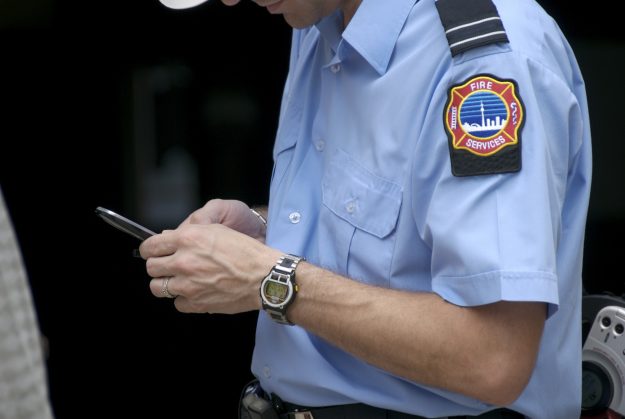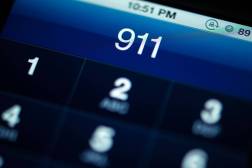Verizon agrees to stop throttling first responder data plans

Verizon said Friday it will no longer impose data limits on the mobile phones and other internet-connected devices used by firefighters and other emergency personnel responding to a disaster, just days after the company was revealed to have cut off service to members of a fire department battling the biggest wildfire in California history.
“In supporting first responders in the Mendocino fire, we didn’t live up to our own promise of service and performance excellence when our process failed some first responders on the line, battling a massive California wildfire,” Mike Maiorana, Verizon’s senior vice president for its public sector business, said in a statement posted on the company’s website. “For that, we are truly sorry. And we’re making every effort to ensure that it never happens again.”
It was reported Tuesday that the Santa Clara County Central Fire Protection District, one of dozens of agencies responding to the Mendocino Complex Fire — which has burned more than 422,000 acres across Northern California since July 26 — effectively lost the ability to use a mobile router after the Verizon account linked to it hit its monthly data limit after just a few days in the field. Verizon sharply limited , or throttled, the account’s upload and download speeds to small fractions their of their normal rates.
The Santa Clara firefighters’ mobile provider woes were included this week in a motion in a lawsuit from 22 states and the District of Columbia against the Federal Communications Commission, over the FCC’s decision to reverse the 2015 order establishing net neutrality, the concept that internet service providers should not prioritize the transmission of certain content over others.
When Santa Clara fire officials asked Verizon what was happening, the company responded by offering a more expensive data plan, which the department eventually purchased out of necessity. “Even small delays in response translate into devastating effects, including loss of property, and, in some cases, loss of life,” Santa Clara Fire Chief Anthony Bowden said in court documents.
Verizon’s first public response said the firefighters’ complaint was not a net-neutrality issue, as the 2015 rules did not prohibit service providers from imposing caps on overall data usage. But rendering a mobile router used to support the fight against in a historic blaze effectively useless gave the Santa Clara firefighters common cause with net-neutrality advocates.
In his announcement, Maiorana said the company on Thursday waived all speed cap restrictions for emergency responders on the West Coast, as well as in Hawaii, which is bracing for the landfall of Hurricane Lane, a Category 2 storm that’s already dumped more than two feet of rain on the state’s Big Island. Going forward, that will be the company’s new nationwide policy.
“Further, in the event of another disaster, Verizon will lift restrictions on public safety customers, providing full network access,” he said.
Meanwhile, the union representing firefighters across California responded to their Santa Clara colleagues’ experience by urging its 30,000 members to support a bill making its way through the State Assembly that would create a local version of net neutrality for the Golden State. The State Senate approved the legislation in May .
“The still-ongoing Mendocino Complex Fire — already the largest in California history — highlights the essential role modern communication plays in deploying resources, evacuating citizens and protecting the lives of firefighters themselves,” read a statement Friday from the California Professional Firefighters. “CPF has come to conclude that if net neutrality is not restored, the effect could be disastrous to the public’s safety.”
The Assembly is scheduled to vote on the net neutrality bill next week.






